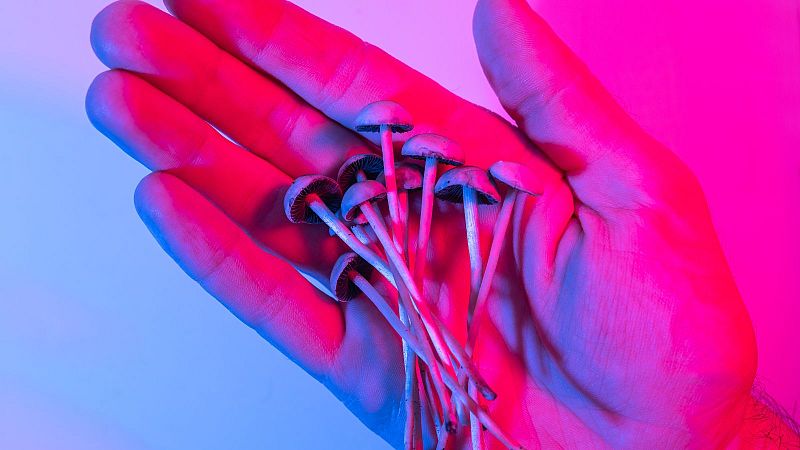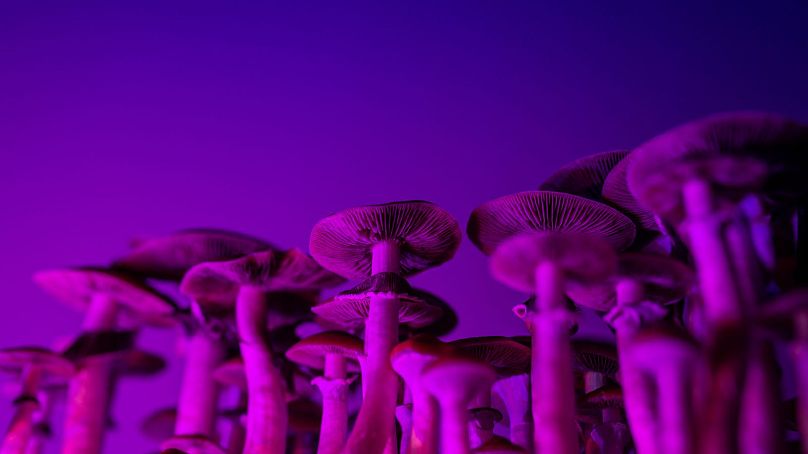Austrian man amputated his penis with an axe after eating psilocybin psychedelic mushrooms

An Austrian man amputated his penis with a blunt axe after consuming a large dose of psilocybin mushrooms, storing its fragments in a jar with soil and dirty snow.
Doctors were mostly able to reattach the penis fragments after disinfecting and debriding them, according to a report of the extreme case in the Mega Journal of Surgery.
Psilocybin is a naturally occurring psychedelic compound found in magic mushrooms.
Once ingested, the body converts it to psilocin, a chemical with psychoactive properties that can cause hallucinations, altering a person’s perceptions of the world and their emotional states.
While often used recreationally, psilocybin has become a popular subject in medical research as a potential treatment for mental health conditions, such as anxiety, depression and post-traumatic stress disorder (PTSD), with 20 studies currently complete or under way to test it in the European Union.
A recent study published in Translational Psychiatry found that the drug showed promise in treating depression by increasing positive mood and alleviating negative thought patterns, while another study by the Washington University School of Medicine in St Louis documented how psilocybin could impact peoples’ perceptions of space and time, making them more open and flexible.
However, outside of the controlled environments of clinical laboratories, psilocybin can be potentially dangerous - especially in those with pre-existing mental health disorders that cause psychosis.
Psychiatric and alcohol abuse issues
The report, conducted by the department of Academic Teaching at the Hospital Feldkirch in Austria, details how the caucasian man, 37, who had a history of depression and "occasional excessive alcohol abuse," consumed four or five dried magic mushrooms while alone at his holiday home.
Shortly after the mushroom’s effects took hold, the man cut his penis into four pieces with an axe, then panickedly ligated the stump with a cloth and stored the severed fragments in a jar.
Confused and bleeding out, he went searching for help until a passerby found him and took him to a nearby village where an ambulance arrived - roughly five hours after the incident had occurred.
The man had no clear recollection of the event.
Having lost a significant amount of blood and in a critical condition, the patient was rushed into surgery, according to the report, where doctors managed to save the tip of the penis and 2 cm of the penile shaft, reattaching them macroscopically.
The surgery was largely successful, with the patient healing well and reported to have “a good urinary stream and erections” four months later - although a total length of 5 cm had to be removed, and a slight complication in the form of coronal hypospadias developed, where the urethra opens further down the penis shaft than normal.
The man was also placed under intensive psychiatric care and given medications after continuing to show psychotic symptoms and religious delusions.
Rare incident
This is the first reported case of psilocybin-induced self-amputation or Klingsor syndrome, a rare condition that involves self-inflicted penile amputation, as reported by the Open Journal of Urology.
While this is an extreme example of the dangers of psilocybin in just one individual, the case report does highlight the potential risks the drug has when used by individuals with more severe underlying mental health conditions that involve the presence of psychosis.
"Psilocybin therapy has been tested successfully in patients with major depressive disorder. However, aside from its therapeutic effects, in patients consuming high doses of psilocybin, experiences of fear and paranoia have been reported in up to 31 per cent and 17 per cent, respectively," the study states.
"Due to lack of protocols on how to handle this rare entity, reporting these cases is important to gain experience,” it concludes.
For the most part, however, research on psychedelic drugs - when used in controlled environments - continues to show promising potential benefits on mental health conditions.
A study published in the Journal of Psychopharmacology, which looked at magic mushroom-related adverse reactions resulting in emergency medical treatment, found such incidents to be rare.
"Magic mushrooms are relatively innocuous substances and rarely cause harm to the individual consuming them nor to other people. Most adverse reactions are short-lived, and their risk can be minimised with certain safety precautions".
Today


